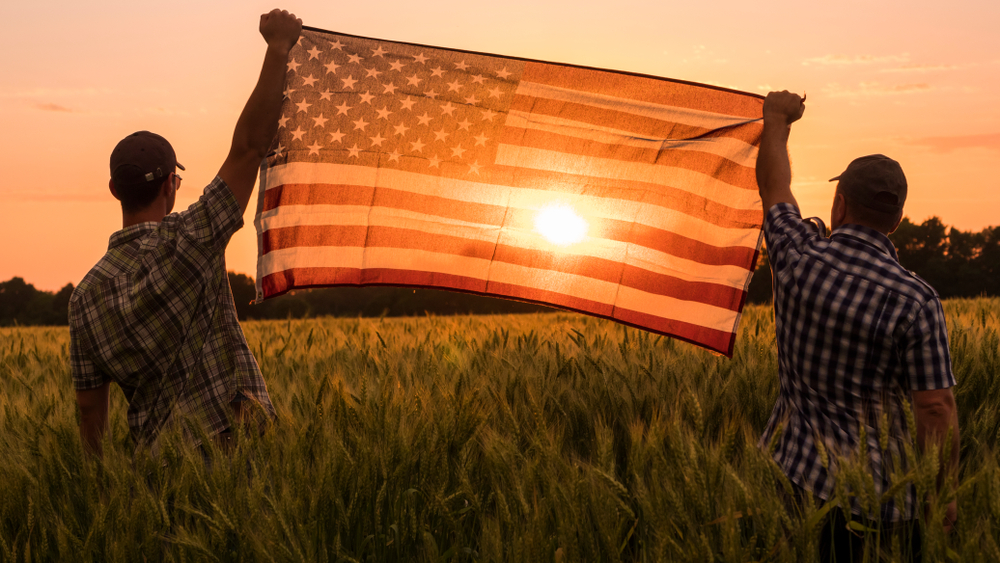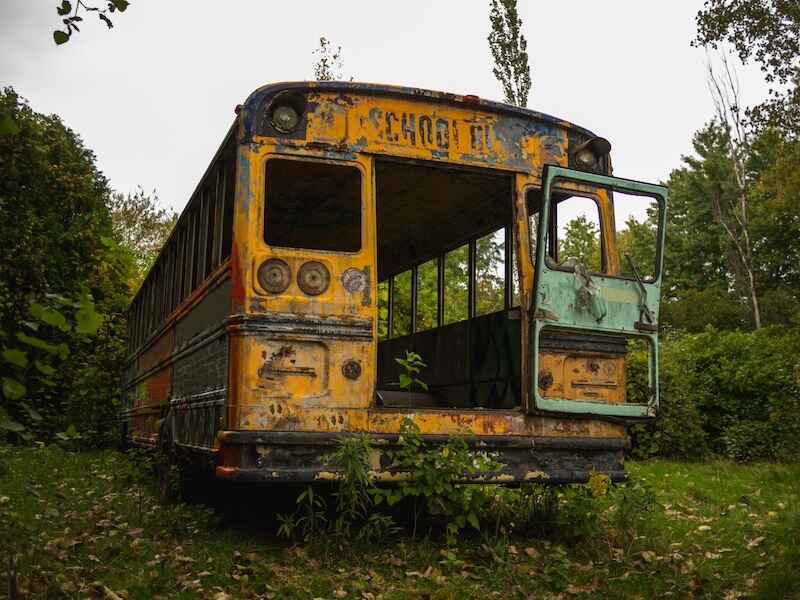Why the Gov’t Wants More Farmers
Joel Salatin|January 8, 2021

President-elect Joe Biden recently announced that he will nominate Tom Vilsack to the position of secretary of agriculture.
The name should sound familiar… He held the same post under President Obama.
The news prompts me to share an unusual story about meeting him… and what it revealed about how he could lead the industry.
Friend to No One
A few years ago, then-Gov. Terry McAuliffe organized a special meeting in Richmond with key agricultural players to show that he was a friend of farming.
I have no idea how I got invited to this auspicious summit, but there I was with the executive directors of various commodity trade organizations, the Farm Bureau Federation, and other state agriculture movers and shakers.
To say I was the odd man out would be the understatement of the year… but I smiled, shook hands and even wore a suit. As a former newspaper reporter, I took my laptop to record the goings-on.
It was billed as a meeting for all of us to tell the governor and his buddy Tom Vilsack what we needed from them.
I went with my list of things like fewer regulations, freedom to sell a glass of milk to a neighbor – you know… real, practical, reasonable things.
But like so many of these kinds of meetings, the summit wasn’t about them listening to what we needed. It was about us listening to all the wonderful things the government could do for us.
Gov. McAuliffe, of course, spent his time talking about all the USDA grants he’d gotten for this project and that project. I then realized that most of the people around the table were beneficiaries of this largesse and quite appreciative that they’d been bestowed with such favor.
Hurting, Not Helping
Before I get to the most shocking part of meeting Vilsack, it’s important to understand that official government policy for a long time has been to reduce the number of farmers and increase the size of farms.
When you look at the trend lines, you see massive centralization in the agriculture sector and tremendous reduction in the number of actual farmers.
Indeed, we now have nearly twice as many people incarcerated in prisons as we have farmers.
For someone who writes books about farming, this gives me pause to realize that I’d have twice as many possible buyers for a book about how to be a successful inmate than one about how to be a successful farmer.
Realize too that this trajectory is billed as true cultural progress… that the fewer farmers we have, the more people we have to spy on China, write new taxes or build computers.
Farmers are considered societal dregs, the bottom-feeders. (At least, that’s what anyone who reads the orthodoxy would think.)
Imagine my shock, then, when I heard Vilsack say we needed more farmers. He actually said it, and I sat bolt upright in my chair because this was certainly a major departure from historical normalcy.
Before I tell you his reason, think for a minute about what it could be.
Who Needs ‘Em?
Let’s assume that you had told a group of agricultural leaders that we need more farmers (even though all your writings and policies said the opposite).
What would you think is the reason?
It couldn’t be for efficiency… because we all know machines are far more efficient than people. The whole objective is to get rid of the people.
It couldn’t be for a stronger economy… Agriculture has been the ugly stepchild for a long time. Silicon Valley is the future. The service economy is the place to go.
Goodness, agricultural economics professors at land-grant universities talk about the value of land under condominiums and factories versus corn fields.
The Las Vegas water department analyzes the value of a gallon of water used to fill a casino hot tub versus the cost to grow an onion in Nevada.
Many make the case that we need to send all our agriculture offshore to make more room for important stuff, like valuable housing and computer terminals.
We can’t be devoting valuable land to something as unimportant as cows and corn.
It couldn’t be for more food security… We can get all the food we need from imports. We don’t even really need farmers.
Even the most avid domestic-supply advocate doesn’t see a connection between farmers and production. Production can be done in robotic urban vertical skyscrapers using grow lights and artificial IV tubes in a hydroponic medium. Who needs soil?
I leaned forward to hear Vilsack’s explanation as to why we needed more farmers.
“They make the best soldiers,” he said.
I couldn’t believe my ears. For all the reasons I could imagine, in the end, the establishment wanted more farmers because they make dependable and creative cannon fodder.
Now, when I publicized the statement, Gov. McAuliffe’s handlers went apoplectic about this being a secret meeting and nothing was to be spoken outside those walls. But nobody asked me to sign a secrecy statement.
I figured a meeting with senior ag lobbyists, the governor and the sitting secretary of agriculture would be a place where transparency was paramount.
Apparently, they viewed it as a good ol’ boy summit over industrial sandwiches and high-fructose corn syrup drinks to let their hair down about the true agenda.
You can no doubt see why they wanted it kept quiet.
So as a new administration takes office this month with many familiar faces… remember that whatever comes out of the USDA that purports to increase the number of farmers is not really about taking care of the land, healing rural villages, growing better food or reviving a lost vocation.
No, it’s really about getting good kids into the military. Isn’t that comforting?
Are you surprised by Secretary Vilsack’s remark? Share your thoughts at mailbag@manwardpress.com.

Joel Salatin
Joel Salatin calls himself a Christian libertarian environmentalist capitalist lunatic farmer. Others who like him call him the most famous farmer in the world, the high priest of the pasture, and the most eclectic thinker from Virginia since Thomas Jefferson. Those who don’t like him call him a bioterrorist, Typhoid Mary, a charlatan, and a starvation advocate. With a room full of debate trophies from high school and college days, 12 published books, and a thriving multigenerational family farm, he draws on a lifetime of food, farming and fantasy to entertain and inspire audiences around the world.



